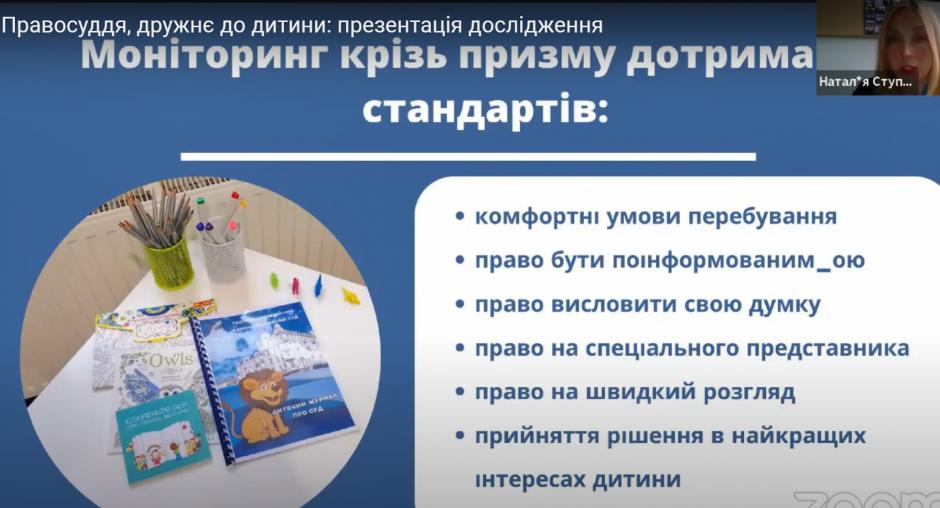OSCE-supported report on civil society monitoring of children’s rights protection presented in Kyiv

A vast majority of Ukrainian civil and administrative court cases concerning the interests of a minor are being examined without involving the minor in question. This is one of the key findings of monitoring and research conducted by civil society on the initiative of Ukraine’s Parliament Commissioner for Human Rights. The research was supported by the OSCE Project Co-ordinator in Ukraine.
The report, available in Ukrainian, was presented at an online event on 1 June 2020, the International Day for the Protection of Children. The event brought together more than 200 judges, representatives of state authorities, civil society and human rights activists, and other justice sector stakeholders. The event was also streamed live for the general audience (streaming available here).
The monitoring was conducted in autumn 2019 and covered court hearings and meetings of the guardianship authorities in the regions of Kyiv, Lviv, Sumy, Lugansk, Zakarpattya, Khmelnytsk and Chernivtsi as well as the city of Kyiv. The monitoring was complemented by analysis of official court statistics related to non-criminal cases as well as a review of court judgments in civil and administrative cases related to the rights and interests of the child. Additionally, interviews with judges, advocates, jurors and guardianship authorities’ representatives were also conducted.
Of the 109 hearings monitored, children were personally present in a courtroom in only 5% of the cases. In only 14% of the cases, they attended respective sessions of the guardianship authorities. For only 34% of the cases, the monitors recorded information that the child’s opinion was asked by the guardianship authorities, and in 12% of the cases – by courts. The analysis of the court decisions found evidence that the child personally expressed his/her opinion in the court hearing only in 10% of the examined court judgements. Half of the respondents of stakeholder interviews acknowledged that the child’s opinion does not have due weight and a decisive effect, although recognizing that it is important and deserves consideration.
“The judicial system should be adapted to the needs and vulnerability of children; child’s right to be heard should be respected at every stage of the court proceedings. We hope that this report will be useful for all professionals in making the justice system more child-friendly,” said Henrik Villadsen, OSCE Project Co-ordinator in Ukraine.
To enable the analysis, the OSCE Project Co-ordinator in Ukraine helped to adapt the OSCE ODIHR methodologies on trial monitoring for the local context, trained monitors to use it and provided funding for this research.
“The presented research is the first comprehensive analytical document in Ukraine, which covers issues of implementation of the right of children to have their best interests as a primary consideration in all matters involving or affecting them in non-criminal cases. The obtained results provide good reasoning for the improvement of state policy in this field,” said Lyudmyla Denisova, Parliament Commissioner for Human Rights.
The report also provides recommendations to address the identified issues by codifying legislation on children’s rights and producing a law on child-friendly justice; developing training programmes for judges, lawyers, custody and guardianship authorities’ representatives on child-friendly justice standards, as well as ensuring court buildings and courtrooms are designed with due considerations for needs of visitors with children.
The presentation was organized as part of the OSCE Project Co-ordinator in Ukraine project “Supporting Civil Society Trial Monitoring” in co-operation with Ukrainian Parliament Commissioner for Human Rights, the NGOs “Centre for Policy and Legal Reform” and “Human Rights Vector”.
